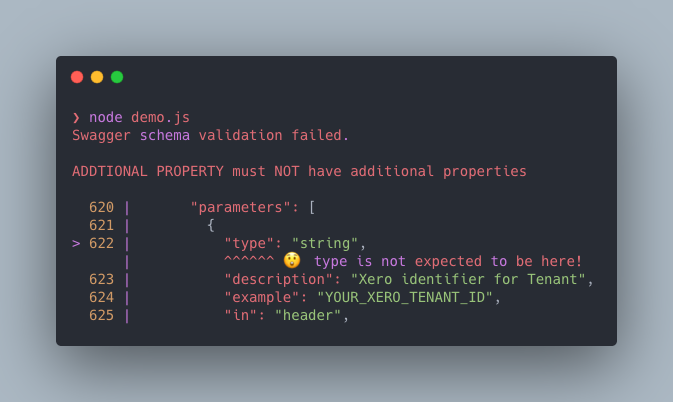Warning
oas-normalizehas moved! The source for this library now lives at https://github.com/readmeio/oas.
Tooling for converting, validating, and parsing OpenAPI, Swagger, and Postman API definitions
npm install oas-normalizeimport OASNormalize from 'oas-normalize';
// const { default: OASNormalize } = require('oas-normalize'); // If you're using CJS.
const oas = new OASNormalize(
'https://raw.githubusercontent.com/OAI/OpenAPI-Specification/master/examples/v3.0/petstore-expanded.yaml',
// ...or a string, path, JSON blob, whatever you've got.
);
oas
.validate()
.then(definition => {
// Definition will always be JSON, and valid.
console.log(definition);
})
.catch(err => {
console.log(err);
});Note
Because Postman collections don't support
$refpointers, this method will automatically upconvert a Postman collection to OpenAPI if supplied one.
Bundle up the given API definition, resolving any external $ref pointers in the process.
await oas.bundle().then(definition => {
console.log(definition);
});Note
Because Postman collections don't support
$refpointers, this method will automatically upconvert a Postman collection to OpenAPI if supplied one.
Dereference the given API definition, resolving all $ref pointers in the process.
await oas.deref().then(definition => {
console.log(definition);
});Validate and optionally convert to OpenAPI, a given API definition. This supports Swagger 2.0, OpenAPI 3.x API definitions as well as Postman 2.x collections.
Please note that if you've supplied a Postman collection to the library it will always be converted to OpenAPI, using @readme/postman-to-openapi, and we will only validate resulting OpenAPI definition.
await oas.validate().then(definition => {
console.log(definition);
});| Option | Type | Description |
|---|---|---|
convertToLatest |
Boolean | By default #validate will not upconvert Swagger API definitions to OpenAPI so if you wish for this to happen, supply true. |
For validation errors, when available, you'll get back an object:
{
"details": [
// Ajv pathing errors. For example:
/* {
"instancePath": "/components/securitySchemes/tlsAuth",
"schemaPath": "#/properties/securitySchemes/patternProperties/%5E%5Ba-zA-Z0-9%5C.%5C-_%5D%2B%24/oneOf",
"keyword": "oneOf",
"params": { "passingSchemas": null },
"message": "must match exactly one schema in oneOf"
}, */
]
}message is almost always there, but path is less dependable.
Load and retrieve version information about a supplied API definition.
await oas.version().then(({ specification, version }) => {
console.log(specification); // openapi
console.log(version); // 3.1.0
});For security reasons, you need to opt into allowing fetching by a local path. To enable it supply the enablePaths option to the class instance:
const oas = new OASNormalize('./petstore.json', { enablePaths: true });If you wish errors from .validate() to be styled and colorized, supply colorizeErrors: true to your instance of OASNormalize:
const oas = new OASNormalize('https://example.com/petstore.json', {
colorizeErrors: true,
});Error messages will look like such:





